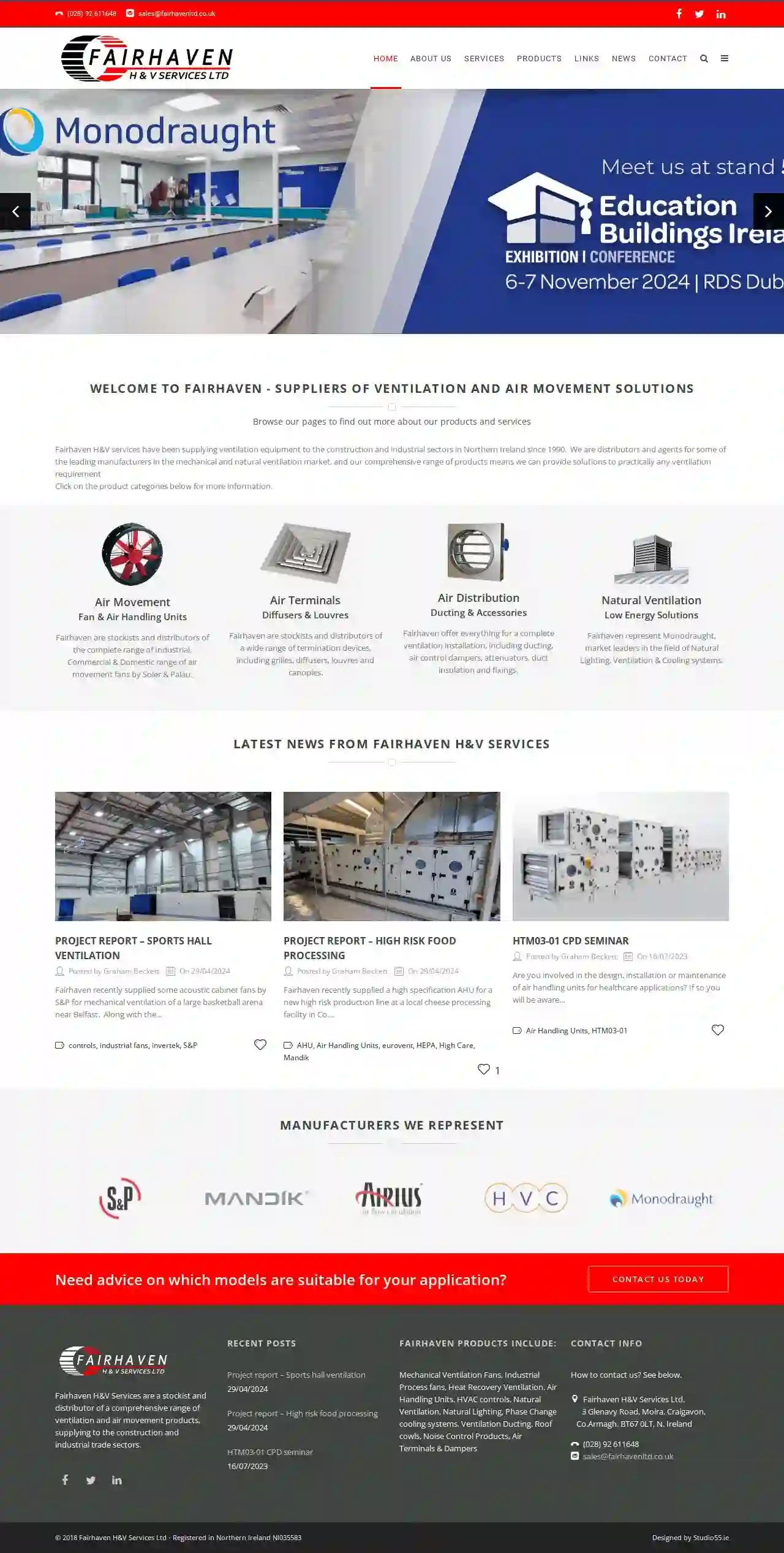Emergency HVAC Belfast
Best 24/7 HVAC Repair in Belfast
Receive up to 3 Emergency HVAC Service quotes for your project today! Compare profiles, reviews, accreditations, portfolio, etc... and choose the best service.
- Th
The Locksmith @ Lock Property Services Ltd
516 reviewsBelfast, GB- Services
- Why Us?
Get Quote 
Flaktgroup
1London, EC4Y 0DZ, 1 Victoria Embankment, SW1A 1YR, GBFläktGroup is a leading provider of indoor climate solutions, offering a wide range of products and services to meet the needs of various industries. With a strong presence in the UK market, the company provides solutions for critical applications, data centers, marine, oil, and gas, car parks, clean rooms, and more. Their team of experts is dedicated to finding the right spare parts for customers and providing top-notch service and support. FläktGroup is committed to delivering high-quality products and solutions that meet the needs of their customers.
- Services
- Why Us?
- Accreditations
- Gallery
Get Quote- BL
BL Refrigeration and Air Conditioning
51 reviewsBelfast, GB- Services
- Why Us?
Get Quote - Ha
Harmony Services
52 reviewsBelfast, GB- Services
- Why Us?
Get Quote - Ca
Calmor Consulting
1Belfast, GB- Services
- Why Us?
Get Quote - CS
CS Boiler Services and Plumbing Ltd
4.816 reviewsBelfast, GB- Services
- Why Us?
Get Quote - Ne
Newry Mourne & Down District Council - Environmental Health
1Belfast, GB- Services
- Why Us?
Get Quote 
Fairhaven H&V Services Ltd
51 reviews3 Glenavy Road, Moira, Craigavon, GBFairhaven H&V services have been supplying ventilation equipment to the construction and industrial sectors in Northern Ireland since 1990. We are distributors and agents for some of the leading manufacturers in the mechanical and natural ventilation market, and our comprehensive range of products means we can provide solutions to practically any ventilation requirement.
- Services
- Why Us?
- Testimonials
- Gallery
Get Quote- Sh
Shiva Air Conditioning
58 reviewsBelfast, GB- Services
- Why Us?
Get Quote - Dm
Dmac Gas Services (Gas Boiler Service Belfast - Boiler Servicing Belfast - Gas Service Belfast)
4.414 reviewsBelfast, GB- Services
- Why Us?
Get Quote
Over 16,895+ HVAC Businesses on our platform
Our HVAC companies operate in Belfast & surrounding areas!
HVACCompaniesHub has curated and vetted the Best HVAC Businesses in and around Belfast. Find a trustworthy business today.